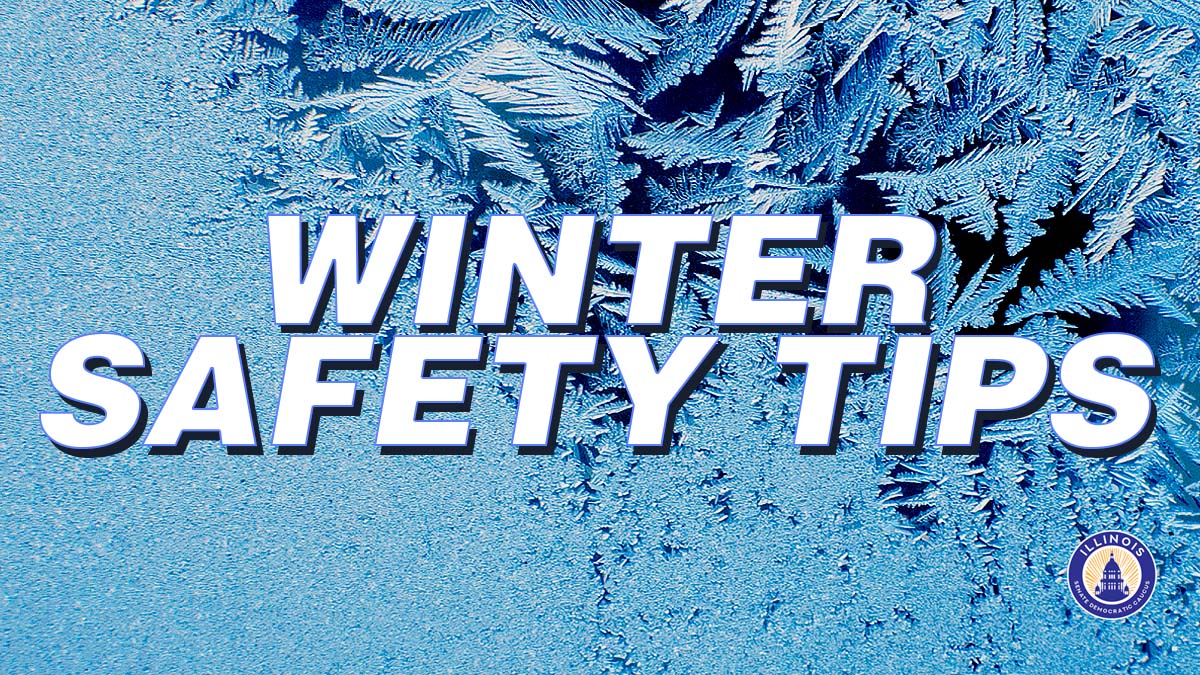
What you should know about being #WinterReady:
- Know what to do before, during and after a winter storm.
- Monitor weather alerts and have a preparedness kit ready in your car, home and at work.
- Stay off the road during and after a winter storm.
- Use a carbon monoxide alarm and heating devices safely.
Stay Safe during Winter Weather
Winter storms create a higher risk of car accidents, hypothermia, frostbite, carbon monoxide poisoning and heart attacks from overexertion. Winter storms can bring extreme cold, freezing rain, snow, ice and high winds. Stay safe this winter with these winter weather safety and preparedness tips.
How do I protect my home from winter weather?
Preparation is the best way to protect yourself and loved ones from winter weather. Prepare your home to keep out the cold with insulation, caulking and weather stripping. Pay attention to weather reports, warnings of freezing weather and winter storms. Listen for emergency information and alerts.
In case of a winter weather advisory, gather supplies in case you need to stay home for several days without power. Keep in mind each person’s specific needs, including medication, and remember the needs of your pets. Learn how to keep pipes from freezing and have extra batteries for flashlights and radios.
If you are unable to afford your heating costs, weatherization or energy-related home repairs, contact the Low-Income Home Energy Assistance Program for help.
How do I keep warm during winter weather?
Cold can kill. Dress in layers, cover skin and limit time outside during cold winter months. Keep in mind that layers of loose-fitting, lightweight clothing will keep you warmer than one bulky layer.
Freezing temperatures increase frostbite and hypothermia risk. Learn the warning signs and basic treatments for frostbite and hypothermia.
Many people die each year from heart attacks brought on by shoveling snow. Dress warm, pace yourself and get others involved to share the work.
How do I stay safe on the roads during winter weather?
Stay off roads if possible during winter weather. If you must drive, remember to take it slow and give emergency vehicles and snowplows plenty of space. Do your part to keep everyone safe on the roads this winter. Dense or patchy fog can be common during the winter months and is a road hazard. Keep your distance from other vehicles when visibility is reduced and turn on your low-beam headlights during a fog advisory.
Prepare your car for winter: keep your gas tank near full to help avoid ice in the tank and fuel lines, and keep an emergency supply kit in your car with jumper cables, reflective triangles, an ice scraper, blankets and cat litter or sand for traction. An emergency kit might come in handy when you least expect it! If trapped in your car, turn on your hazard lights and stay inside.
How do I practice safe generator and heating safety?
Generators can be helpful when the power goes out. It is important to know how use them safely to prevent carbon monoxide poisoning and other hazards. Carbon monoxide is a colorless, odorless gas that can kill you, your family and pets. Remember these important safety tips when operating a generator or other heating devices.
- Keep generators outside at least 20 feet away from doors, windows and vents to avoidaccidental carbon monoxide poisoning.
- NEVER use a generator, camp stove, charcoal grill, gasoline or propane heater indoors.
- If you’re running a portable generator, you need to have a working carbon monoxide alarm inyour home.
- Always connect generators and space heaters to appliances with heavy-duty extension cords.
- Keep anything that can burn at least three feet away from a fireplace, wood stove or spaceheater.
- NEVER heat a home by using the stovetop or oven.
Heating equipment is a leading cause of home fire deaths in the U.S. To learn more ways to protect your family and keep safe, click here.
How do I keep my pet safe in cold weather?
Winter weather can be tough on all of us, including our furry friends. If it’s too cold for you, it’s probably too cold for your pet. Bring your pets inside during cold weather and don’t leave pets alone in a car during extremely cold temperatures to prevent them from freezing, becoming disoriented, lost, stolen or injured.
Remember to protect their paws by wiping their paws with a damp towel after they come inside. Salt and other chemicals used to melt snow and ice can irritate a pet’s paws. You can also massage petroleum jelly or other paw protectants into paws before going outside to protect against irritants.
Winter storms can cause power outages. Make a plan and check on your neighbors if extreme cold or winter weather knocks out your power. Contact your local Office of Emergency Management to find a warming center near you to seek shelter in extreme cold.
Download this document as a pdf here.












 © 2024 Illinois Senate Democratic Caucus
© 2024 Illinois Senate Democratic Caucus